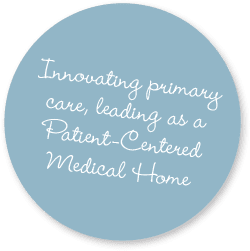Nutrition—what does it actually mean? Yes, nutrition is the biological process of providing your body with proper foods for growth and function, but it’s also more than that. Nutrition is about making informed decisions to better your physical, mental and emotional health. Let’s discuss some manageable ways to focus on nutrition for you and your family.
Healthy Eating
While there are many different resources out there, the USDA recommends that your meals consist of:
- half vegetables and whole fruits
- one quarter whole grains
- one quarter protein
- some healthy fats (such as nuts, seeds, olive and coconut oils)
Food choices will be different for everyone and dependent on food access, affordability, traditions and cultures, and food preferences (including vegetarianism, veganism, etc.).
With this new way of approaching food, your main focuses will be to eat more nutritious foods, trying a variety of nutritious foods and being careful not to restrict certain foods or go on fad diets.
When you start to eat more fruits, veggies, whole grains, lean protein, and healthy fats, you’ll start to see that:
- your digestive system works more efficiently
- you feel less hungry between meals (preventing junk food snacking)
- your energy increases
As your body grows accustomed to new and nutritious foods, you’ll see that you start eating less refined carbohydrates and refined sugars which contribute to poor diet, weight gain, and illnesses.
Try this: Include at least one new nutrient-dense food into every meal.
Physical Activity
Keeping your body active lowers your risk of many illnesses such as heart disease, diabetes, obesity, and depression. When you eat and drink, you’re taking in calories that your body uses for normal functioning. However, Americans tend to eat larger portions than needed—and usually more refined carbohydrates and sugars—leaving an excess of calories just waiting to be burned!
Remember, you can’t exercise your way from a bad diet. This means that if you’re looking to lose weight, exercise alone will not work. The harmony of eating healthier foods and moving your body will help you maintain a healthy weight. Try to keep the following in mind:
- Walking helps your body to digest its food
- Muscles need carbohydrates and protein for energy and muscle repair
- The more intense the exercise, the more calories you burn
When adopting healthier lifestyle habits, it’s also important to learn to listen to your body. For instance, if you’re recovering from the flu, your body needs rest and fluids more than it needs intense exercise.
Try this: Incorporate 30 minutes of exercise into your daily routine. This could mean taking the stairs, parking at the far end of parking lots, and walking around your office building during lunch—any movement is better than no movement.
Emotional Health
Emotional health is another important aspect of your nutrition. Emotions can greatly affect food and exercise choices. There are many different reasons for this including stress, family celebrations and obligations, and “emotional eating.”
A quick note on emotional eating: everyone has experienced eating while bored, stressed or otherwise emotional. If you have trouble controlling emotional eating, please speak with your health care provider right away.
Eating healthy meals and snacks will help fuel your body appropriately making exercise easier and better for your body. Exercise can:
- increase your overall energy and boosts your mood
- help you sleep better at night
- reduce stress, anxiety, depression symptoms
- increase self-esteem and confidence
Consider your emotions when you crave “junk food,” or when you don’t feel like exercising. Is there something going on in your life? Will you feel better after exercise, a healthy meal, or rest?
Try this: Keep a record or journal of how exercise and healthy foods make you feel. This information can serve as motivation if you need a boost.
Adopting a nutritious lifestyle will be different for everyone. Take it one step at a time, be patient with yourself, and enlist the help of a friend for extra accountability. If you need support and guidance to get started, speak with your primary care provider.



